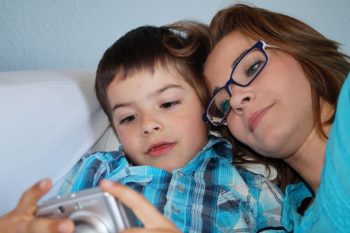 Summertime Social-Emotional Learning Routines
Summertime Social-Emotional Learning Routines
As the summer sun calls and school doors close, parents, you have the perfect opportunity to focus on nurturing your child’s social skills in the comfort of home. Social skills are essential for navigating the complexities of human interaction, fostering meaningful relationships, and thriving in various social settings. In this blog post, I’ll explore practical and engaging ways you can cultivate social skills in your child during the summer break.
Encourage Playdates and Social Interaction:
- Arrange playdates with friends, neighbors, or classmates to provide opportunities for social interaction.
- Create a conducive environment for play by offering toys, games, and activities that encourage cooperation and communication.
- Supervise play sessions and intervene when necessary to teach conflict resolution and problem-solving skills.
Model Positive Social Behaviors:
- Be a role model for your child by demonstrating kindness, empathy, and respect in your interactions with others.
- Use everyday situations as teaching moments to illustrate social norms, such as taking turns, sharing, and listening attentively.
- Provide verbal praise and reinforcement when your child exhibits positive social behaviors.
Practice Active Listening:
- Teach your child the importance of active listening by maintaining eye contact, nodding, and responding appropriately during conversations.
- Engage in active listening exercises where you and your child take turns sharing stories or experiences, demonstrating empathy and understanding.
Promote Emotional Awareness:
- Help your child identify and label their emotions using simple language (e.g., happy, sad, angry).
- Encourage open communication about feelings and emotions, validating your child’s experiences and providing support when needed.
- Use books, videos, or visual aids to explore different emotions and discuss how to cope with them in healthy ways.
Role-Play Social Scenarios:
- Role-play common social situations with your child, such as introducing themselves to new friends, asking for help, or resolving conflicts.
- Take on different roles and encourage your child to practice appropriate responses and problem-solving strategies.
- Provide feedback and positive reinforcement to reinforce desired behaviors.
Engage in Cooperative Activities:
- Participate in cooperative activities that require teamwork and collaboration, such as cooking, gardening, or building a fort.
- Emphasize the importance of working together, sharing responsibilities, and respecting each other’s ideas and contributions.
- Reflect on the experience afterward, discussing what went well and how each person contributed to the task.
Explore Social Stories and Role Models:
- Read social stories or watch videos featuring characters who demonstrate positive social skills and behaviors.
- Discuss the lessons learned from these stories and how they apply to real-life situations.
- Encourage your child to emulate positive role models and incorporate their behaviors into their own interactions
Celebrate Social Successes:
- Celebrate your child’s social successes, no matter how small, to reinforce their confidence and motivation.
- Keep a journal or visual chart to track progress and acknowledge achievements along the way.
- Encourage a growth mindset by emphasizing effort, perseverance, and continuous improvement in social skills.
Summer is the perfect time for you to focus on nurturing your child’s social skills in a supportive and enriching home environment. By incorporating these practical strategies into everyday activities, you can help preschool and elementary-aged children develop the social competence they need to thrive in school, relationships, and life. Remember, building social skills is a journey that requires patience, consistency, and encouragement, but the rewards are immeasurable.

Alison Whiteley has been a special education teacher for over 15 years, spending most of her time working with elementary students and families. After graduating from the University of Colorado with a Bachelor of Arts in Special Education and Psychology, she continued her education with a Masters in Reading from Walden University. In addition, she has achieved endorsements supporting Early Childhood Special Education and Diverse Learners which she uses to help identify needs across all learners.
Ms. Whiteley is trained in Wilson Reading System and Yoshimoto Orton-Gillingham. She believes all students can learn to read and be successful. She has served as a Special Education Coach and Mentor to fellow specialists and teachers, facilitated the creation of her elementary school’s Response to Intervention/Multi-Tiered Systems of Support (RTI/MTSS) process and helped parents through the Special Education process as IEP Coach for parents. In 2013 she completed the National Boards of Professional Teaching in Exceptional Needs with recertification in 2022. Her areas of expertise involve working with students with learning disabilities, supporting stakeholders moving through the special education process, and helping parents and teachers understand what they can do to support struggling learners in the public school settings.
She is a founding member of the Colorado Reading League and a member of the International Dyslexia Association in Colorado. Alison has two greyhounds and two nephews who keep her busy outside of school. She is the CEO of Toad-ally Exceptional Learners at http://www.toad-allyexceptionallearners.com. Alison is a valuable source of information to support teachers and parents, although she is not a lawyer and does not give legal advice. Her services support families through the IEP process and how they can be an equal member of the team through positive interactions. She focuses on collaboration and using tools to take IEPs to the new level of helping students achieve.